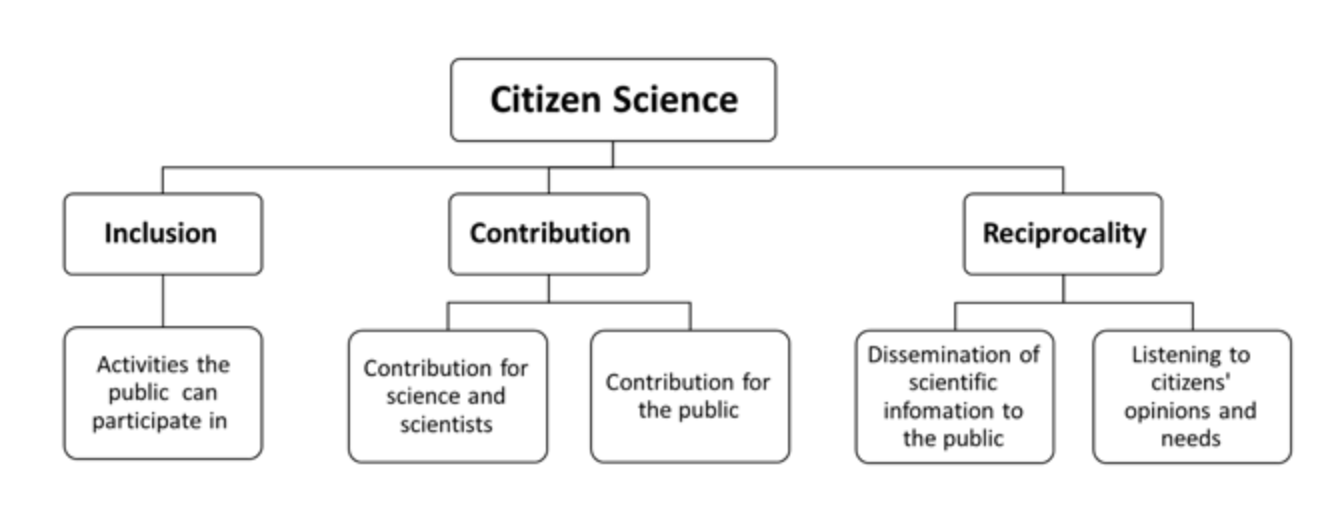Increased interest in public engagement with science worldwide has resulted in the growth of funding opportunities for scientists in the rapidly expanding field of citizen science. But what is the experience of scientists participating in citizen science projects? How do they perceive their commitment to the public? And how is the relationship between 'citizen' and 'science' defined both in the literature and also by practicing scientists.
This paper describes a case study, which planned to involve citizen science in an air pollution study. Findings are based on interviews and observations, including a six-month field diary, of ten scientists who engaged in a citizen science project not because they are convinced of its value as an approach to strong science but in order to receive funding for their scientific research. The project team reviewed around eight frameworks for understanding citizen science and came up with the framework below which highlights that there are varying degrees of public participation in different aspects of the research process from question framing to data analysis. The paper discounts modes of citizen science, which involve the public in extremely simple tasks, as crowdsourcing rather than citizen science.
 Figure
Figure
Three fundamental elements of citizen science (Bonney et al. 2009; Cox et al. 2015; Dickinson et al. 2010; Franzoni and Sauermann 2014; Haklay 2013; Haywood and Besley 2014; Shirk et al. 2012; Wilderman 2007).
The findings indicate that these scientists were motivated mostly by their interest in promoting scientific research and obtaining prestigious funding rather than being convinced of the value of public involvement:
"...rather than focusing discussion on activities and procedures in which the public could take part, the project scientists emphasized the publics’ lack of ability to truly contribute to the project and argued that raw data could not be shared with citizens. This triggered a lengthy debate on the publics’ role in the project, data transparency, and the question “do we even want the public to be involved?”
Many of the scientists interviewed, did not accept that the public might make valuable contributions to the questions or processes of science.
To witness such a deficit attitude towards those outside science is unlikely to be new to practitioners of public and community engagement. However, an in depth exploration of what these attitudes are and where they originate is rarely described in the literature. Here attitudes are outlined but the roots of such beliefs remain unarticulated.
In conclusion the paper suggests that exposing scientists to public engagement and citizen science concepts, especially at early stages of their scientific carrier, could help overcome barriers and encourage scientists to further engage the public in such initiatives. However, perhaps more thought is needed. It seems that for citizen science to become a recognised approach to knowledge and research researchers ought to want to see their research contextualised and relevant beyond their individual career ambitions and disciplinary constraints. Perhaps this requires more than a shift in the mind-set of the individual researcher but a shift in the mind-set and structures of 'the academy' itself?
Download full article here
This work, unless stated otherwise, is licensed under a Creative Commons Attribution 4.0 International License


Please Sign in (or Register) to view further.